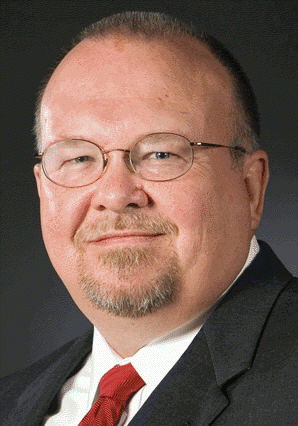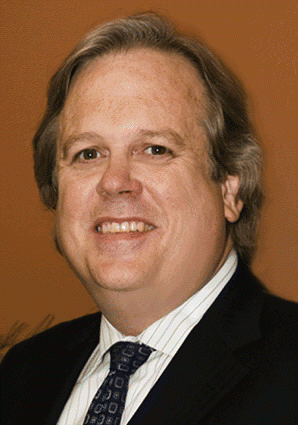Six years ago, in August 2001, the University of Michigan Health System (UMHS) had 262 pre-suit claims and lawsuits pending. In late 2007, four years into its innovative approach for addressing medical errors, the health system had just 83 pending cases.1 Comprehensive transparency and medical error policies at UMHS and other institutions (such as the University of Illinois, Stanford, and the Harvard Partners Organization) have shown that it is possible to reach a better bottom line and patient safety outcomes by eschewing the deny and defend route that has become all too common.2
Explore This Issue
October 2008Shouldn’t every physician, surgeon, and community hospital follow suit? The chorus of approval for disclosure and apology, fueled by ethical standards and now regulatory requirements, may be drowning out some possible downsides, according to experts we interviewed. Attorney Michael E. Clark, JD, of the Houston partnership of Hamel Bowers & Clark LLP, cautioned, The devil’s in the details.
A former federal and state prosecutor and now a health care defense attorney, Mr. Clark is a Governing Council member of the American Bar Association’s Health Law Section and an Adjunct Professor of Law at University of Houston Law Center. It’s one thing to have a unified institutional approach to help foster transparency and responsibility regarding medical errors. But Mr. Clark believes that otolaryngologists in private or group practices, and who practice in community settings, would do well to proactively think through and develop a coherent risk management strategy before launching into full disclosure.
Unlitigated Cases: A Sleeping Giant?
A colleague of Mr. Clark’s, attorney and physician advocate Charles Key, JD, of the law firm Wyatt, Tarrant & Combs LLP, in Memphis, TN, fears that positive results reported by UMHS and others could cause unintended consequences. The effect of early intervention apologies on decreases in medical liability payments is very encouraging, but it flies directly in the face of what defense counsel experience day to day, he noted. When something goes wrong, many of us look to ourselves first. We wonder: ‘What did I fail to do that would have made a difference here?’ This is a natural response, but it’s the last thing you want your client to do-to sit in a room and say, ‘Oh, I messed up; I’m so sorry.’
Mr. Key pointed to a 2007 study by Studdert et al., which concluded that routine disclosure could very well expand litigation.3 The authors referred to the great unlitigated reservoir of cases (as most medical errors do not result in litigation) and found, in their models, that disclosure might prompt a number of new claims that would outweigh the number of deterred claims.
This has not been the experience at UMHS, according to Chief Risk Officer Richard C. Boothman, JD. I can probably pick a couple of claims that might not have been brought without our program, he conceded.
In fact, one recent case involved otolaryngology. A stent had been left in a patient’s sinuses following a procedure, causing discomfort and sinus infections. An internal investigation revealed the root causes of the error and UMHS accepted responsibility, settling for $25,000. Would that case have been brought if we weren’t as proactive and trying to be principled? queried Mr. Boothman. Probably not-but such a case is grossly outweighed by the number of cases that never materialized because we engaged patients and families right away-and were unabashedly empathetic-even while holding the line in principle. Mr. Boothman reported that many patients and families have withdrawn claims or voiced their preference that caregivers not be unduly penalized for their mistakes because they had observed staff members’ empathy throughout their loved ones’ hospitalizations.

Smart Claims Management
Program-wide policies instituting transparency and disclosure, such as the one at UMHS, are espoused by the Sorry Works! Coalition.4 UMHS efforts have been aided by state tort reforms, which provide for a six-month cooling-off period during which cases can be investigated, and by the fact that their health system is self-insured. Mr. Boothman also attributes their success to application of what he calls smart, decisive claims management principles to pre-suit claims and litigation. UMHS, he said, does not settle cases for expediency’s sake, does not engage in nuisance settlements, but does take an honest look at adverse events to glean the difference between a true error and reasonable medical care.
The institution also acknowledges that physicians and other health care providers work in an inherently dangerous environment. Pivotal to UMHS’ claims management approach is a stance that their physicians deserve an aggressive defense, with the best lawyers and best experts, if their care was reasonable, even if it resulted in a bad outcome. However, for such strategies to work, the onus is also on institutions to ferret out cases of true negligence or breach of the standard of practice. UMHS takes this process into its own hands, rather than deferring to the legal system to do so.
 You cannot get to clinical improvement, and you cannot avoid future mistakes, until you admit you have a problem.
You cannot get to clinical improvement, and you cannot avoid future mistakes, until you admit you have a problem.-Richard C. Boothman, JD
Policy Not Enough
Jo Shapiro, MD, Chief of the Division of Otolaryngology at Brigham and Women’s Hospital (BWH) and former Senior Associate Director of the Office of Graduate Medical Education for BWH and Massachusetts General Hospital in Boston, is deeply embedded in her institution’s full disclosure and apology program. Working with pioneers Rich Van Pelt, MD, and Lucian Leape, MD, Dr. Shapiro ardently believes that it is not enough to have an institution-wide policy in place to foster transparency; two other crucial elements are education and support. To just make a policy and not have support behind it is almost worse than no policy at all, she said. Her passion is to help physicians do a better job of being transparent with patients. My stance has been that all caregivers need to understand how to do this better, she asserted. We can’t just tell doctors to disclose and apologize, because we don’t have the experience-and our emotions are likely to get in the way of doing it well.
One solution at BWH, as well as at most of the other Harvard teaching hospitals, is the recent roll-out of a just in time disclosure coaching team. This approach operates on the assumption that, in the acute period surrounding the event, physicians may be too affected by errors to correctly judge the best approach to take; that effective disclosure and apology are learned skills that physicians may only need to access infrequently; and that disclosure to patients and families is not formulaic. The team is available to staff 24/7 and helps the treatment team plan their approach. Dr. Shapiro emphasized that disclosure is very much an ongoing process, and that expressing concern for the situation does not mean taking the blame. While expressing genuine empathy, physicians also assure the patient and family that a full investigation will be conducted to reveal what happened, that they will stay in communication, and that they will remedy the situation.
A peer support team, run separately, was initially trained by first responders and is now trained by in-house leaders. It is also available for physicians who want to debrief with someone who has had a similar experience. Employee assistance programs can also offer additional confidential counseling support. Harvard hospitals also offer Medically-Induced Trauma Support Services (MITSS) to patients and their families during adverse events situations. Dr. Shapiro said that Anthony Whittemore, MD, Chief Medical Officer of BWH, has been an enthusiastic supporter of the intervention programs for physicians, and that the program works closely with the risk management department.
Mr. Key agreed that such support systems for physicians are vital to the outcome of the disclosure process. We can’t expect doctors to learn the exquisite detail of how to approach families and hone their skills with that along with all the many other things required of them, he said. He often encourages physicians and hospitals caught in unplanned events to involve chaplains, social workers, and others who can help work for a common resolution for the patient’s well-being.
 Nobody wants to envision this situation [an error or preventable adverse event] happening. But if you do enough business over time, even the best designed systems are going to fail-just because everybody is human.
Nobody wants to envision this situation [an error or preventable adverse event] happening. But if you do enough business over time, even the best designed systems are going to fail-just because everybody is human.-Michael E. Clark, JD
Eyes on the Prize
Mr. Boothman believes that UMHS’ approach to transparency may, in the long run, be even more important than its claims management strategy. You cannot get to clinical improvement, and you cannot avoid future mistakes, until you admit you have a problem, he noted. We have all been so afraid of what it will do in the courtroom to admit that we have a problem, that we can’t get off that first step of our 12-step program!
Mr. Key agreed that the tort system is broken, and that reform in the medical injury compensation system is needed so that disclosure of errors is encouraged rather than discouraged. But any reform must take into account that someone must compensate patients for injury and disability. In our zeal to fix these problems we’re talking about, we cannot lose sight of the fact that people do get injured in the course of receiving medical treatment, and that often these injuries were avoidable-thatwhy we need to learn from them, he said.
Dr. Shapiro added that being involved in errors often has an emotional impact on clinicians. Careful attention to support systems can help physicians address these underlying emotions and help ensure their continued professionalism.
Private Practitioners Can Replicate a Risk Management Department
UMHS Chief Risk Officer Richard C. Boothman concedes that it is tougher for otolaryngologists in group or private practice, in the community setting, to match the risk management resources of academic institutions or closed health systems. However, he and others interviewed for this article asserted that physicians can build their own commensurate support system to help address medical error situations.
Here is some of their collective advice:
- Plan for errors. Nobody wants to envision this situation [an error or preventable adverse event] happening, said attorney Michael Clark. But if you do enough business over time, even the best designed systems are going to fail-just because everybody is human. He advises being proactive and making plans ahead of time, instead of having to react and triage problems in real time.
- Establish a relationship with a defense attorney conversant in health care law. Set up a consultation and establish an agreement with the attorney, including him or her in your arsenal of other professional advisors. Recognize that stonewalling patients can set up a propensity to litigate, so ask the attorney to be available if you encounter trouble to help you navigate interactions with your insurance company and the patient and family.
- Set realistic expectations ahead of time. Surgeons have a discrete opportunity to do this, said Mr. Boothman. The physician who has the emotional maturity to tell the patient that the outcome is not guaranteed, but that he or she will be with the patient throughout the process, stands a far better chance of avoiding claims afterward.
- Encourage your hospital leadership to support clinicians. The Joint Commission requires transparency, noted Dr. Shapiro, and clinicians can voice that transparency is the right thing to do for patient care-but that clinicians must also be supported, because this is a hard thing to do.
- Consider an outside speaker. To help kick off transparency policy efforts, having an outside speaker can sometimes galvanize administrators as well as clinicians, said Dr. Shapiro. In this way, clinicians and institutions will learn that they are not alone in facing these troubling events.
Additional resource: The University of Michigan Health System makes available a patient safety toolkit, including an examination of the disclosure controversy, recommended reading, and other resources. Go to: www.med.umich.edu/patientsafetytoolkit .
References
- Medical Malpractice and Patient Safety at UMHS, accessed June 30, 2008 from www.med.umich.edu/news/newsroom/mm.htm .
[Context Link] - Sack K. Doctors start to say ‘I’m sorry’ long before ‘See you in court.’ New York Times May 18, 2008:1, 17.
[Context Link] - Studdert DM, Mello MM, Gawande AA, et al. Disclosure of medical injury to patients: an improbable risk management strategy. Health Affairs 2007;26(1):215-26.
[Context Link] - Wojcieszak D, Banja J, Houk C. The Sorry Works! Coalition: making the case for full disclosure. Joint Commission Journal on Quality and Patient Safety 2006;32(6):344-50.
[Context Link]
©2008 The Triological Society
Leave a Reply